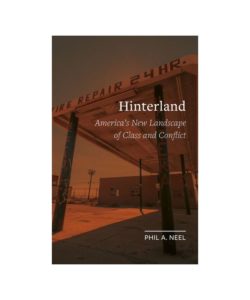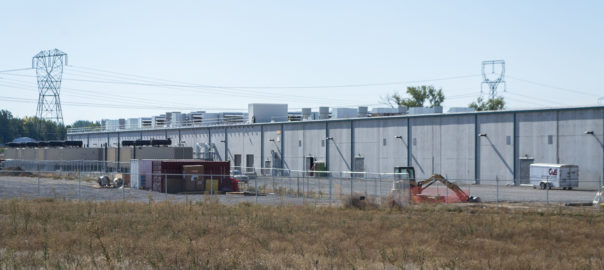Podcast: Play in new window | Download
Subscribe: Apple Podcasts | RSS
We spend the hour with Phillip A. Neel talking about his book Hinterland: America’s New Landscape Of Class And Conflict. It’s about how America’s class structure is recomposing itself in new geographies of race, poverty, and production.
Writer’s Voice — in depth conversation with writers of all genres, on the air since 2004. Rate us on iTunes or whatever podcast app you use!
Like us on Facebook at Writers Voice with Francesca Rheannon or find us on twitter @WritersVoice.
Phillip A. Neel
Driven by an ever-expanding socioeconomic crisis (now exacerbated by the covid19 pandemic) America’s class structure is recomposing itself in new geographies of race, poverty, and production. Over the last forty years, the human landscape of the United States has been fundamentally transformed.
 The metamorphosis is partially visible in the ascendance of glittering, coastal hubs for finance, infotech, and the so-called creative class. But this is only the tip of an economic iceberg, the bulk of which lies in the darkness of the declining heartland or on the dimly lit fringe of sprawling cities.
The metamorphosis is partially visible in the ascendance of glittering, coastal hubs for finance, infotech, and the so-called creative class. But this is only the tip of an economic iceberg, the bulk of which lies in the darkness of the declining heartland or on the dimly lit fringe of sprawling cities.
This is America’s hinterland, populated by towering grain threshers and hunched farmworkers, where laborers drawn from every corner of the world crowd into factories and “fulfillment centers” and where cold storage trailers are filled with fentanyl-bloated corpses when the morgues cannot contain the dead.
By means of memoir, analysis of the political geography of class and sheer descriptive power, Philip Neel’s book Hinterland is a guidebook to America’s new heart of darkness.
Neel teaches geography at the University of Washington. He was raised in a mobile home in the Siskiyou Mountains, on the border of California and Oregon.
“Wageless Life”: Review of Hinterland by Sarah Brouillette
By
[]

